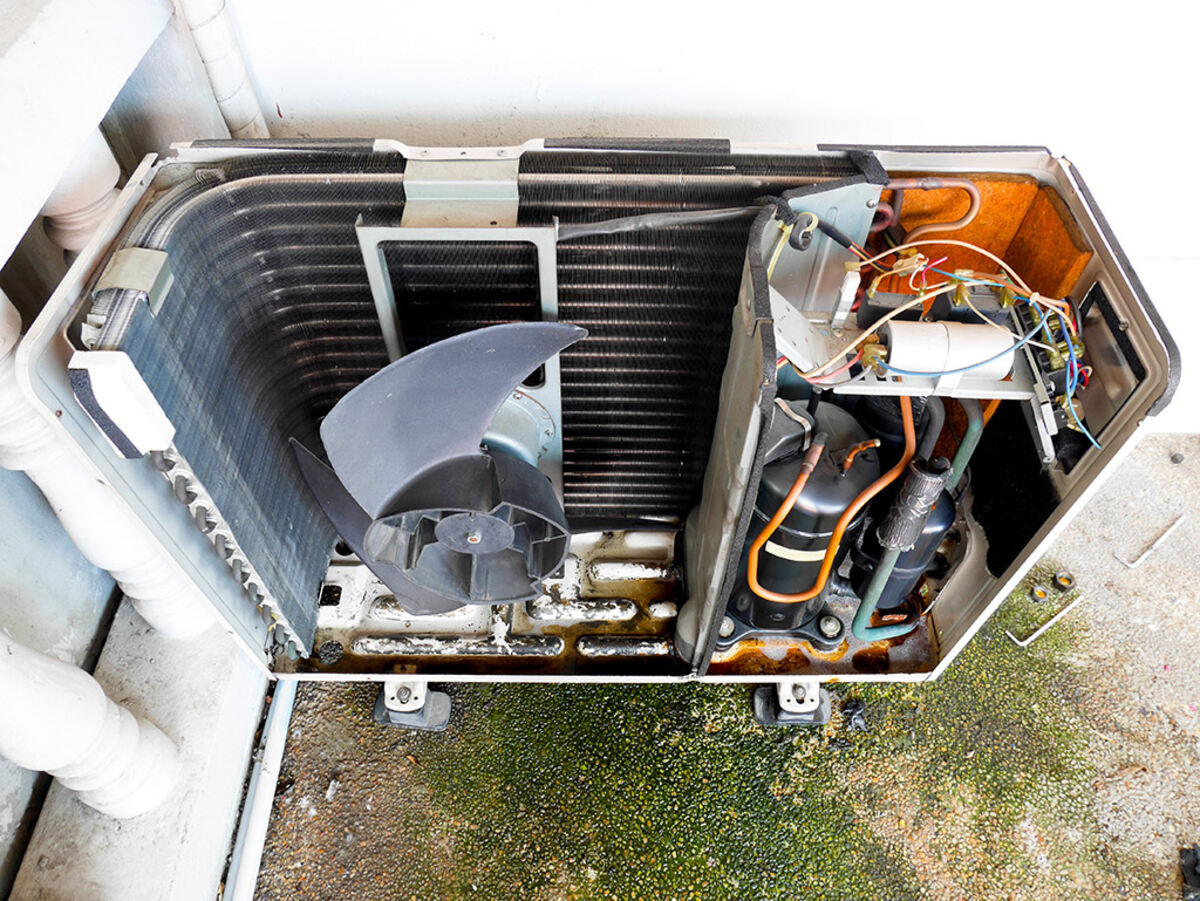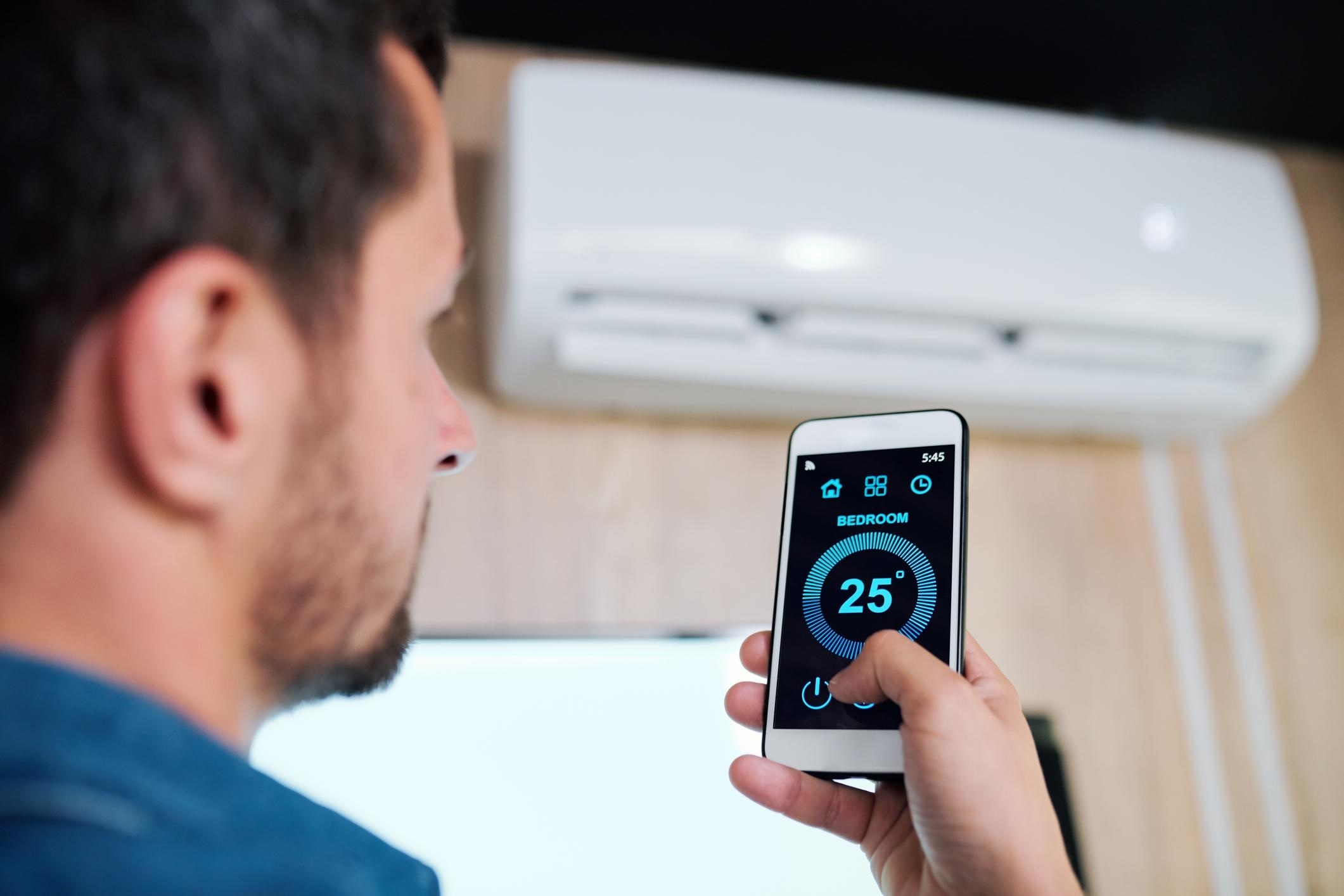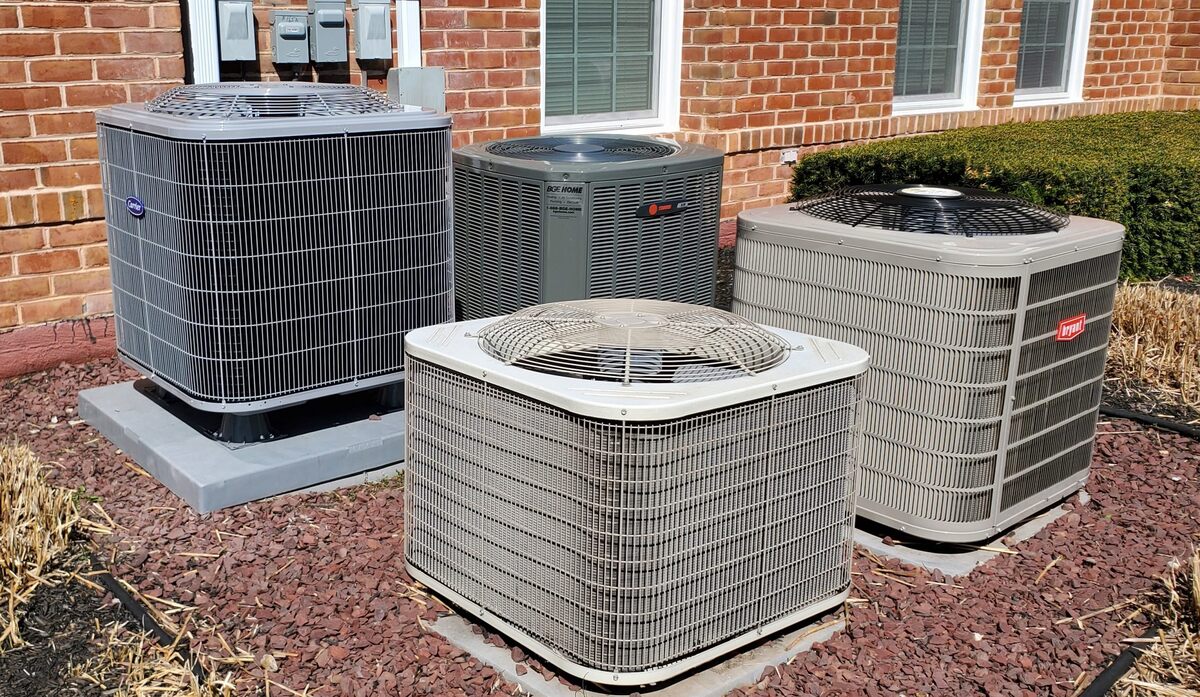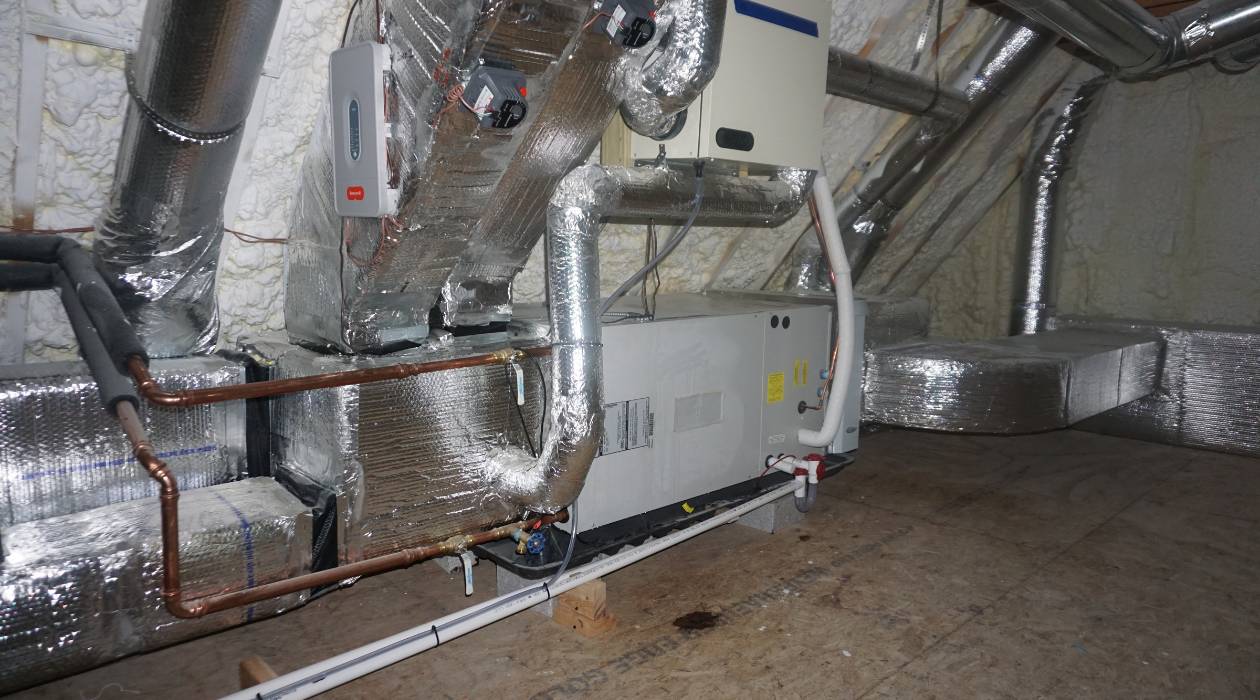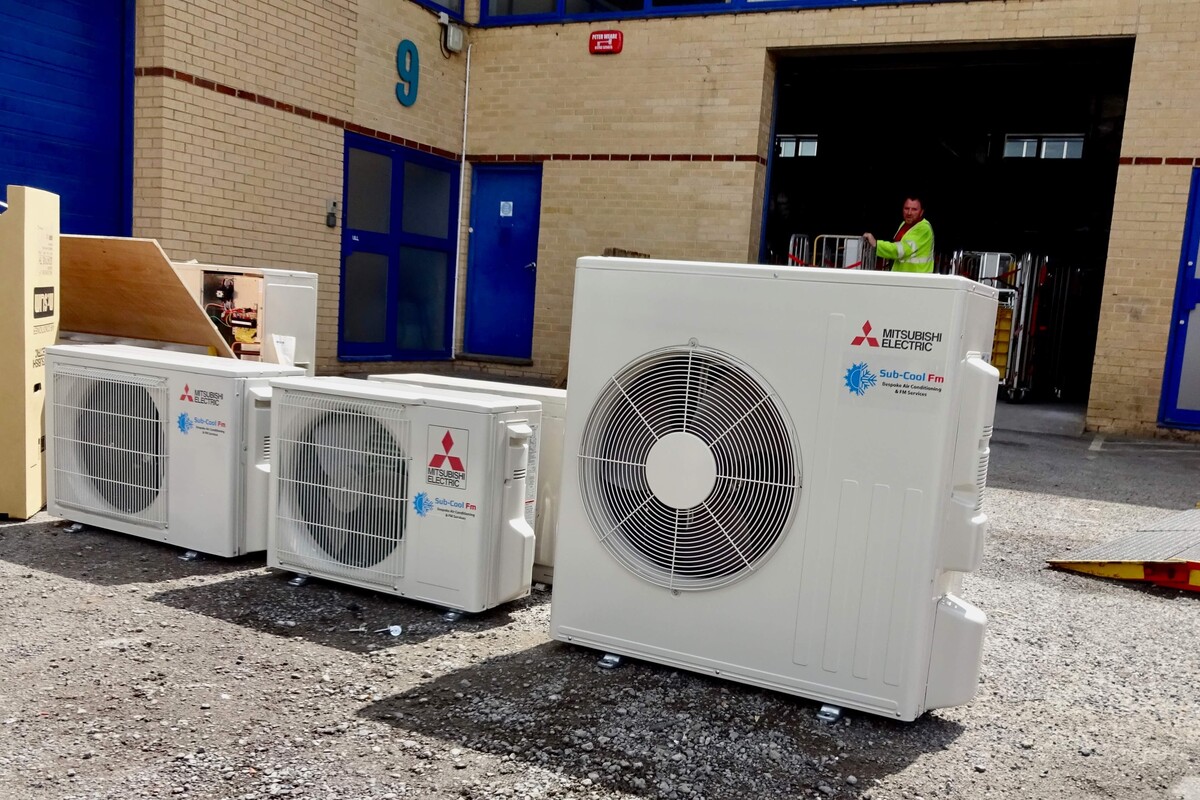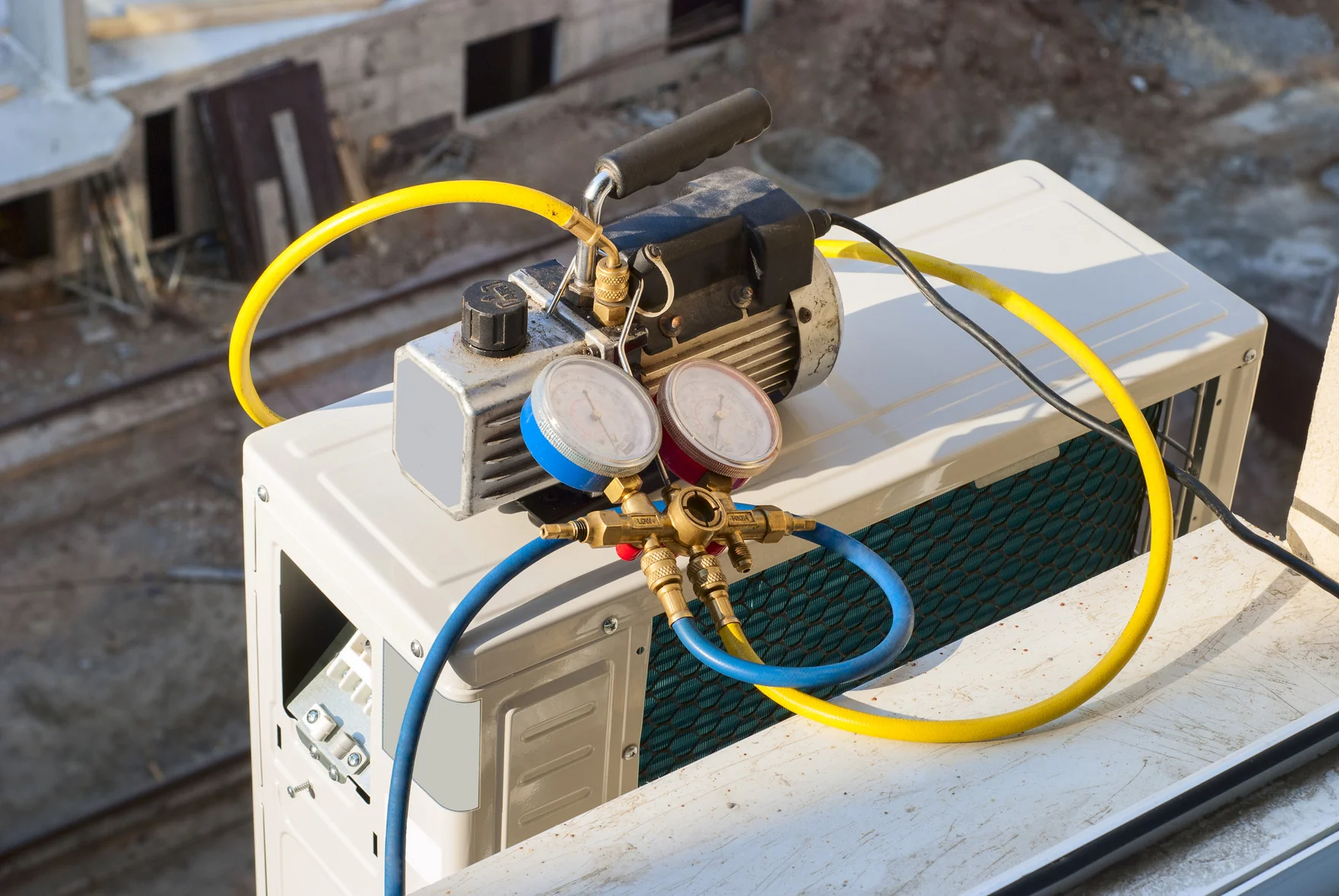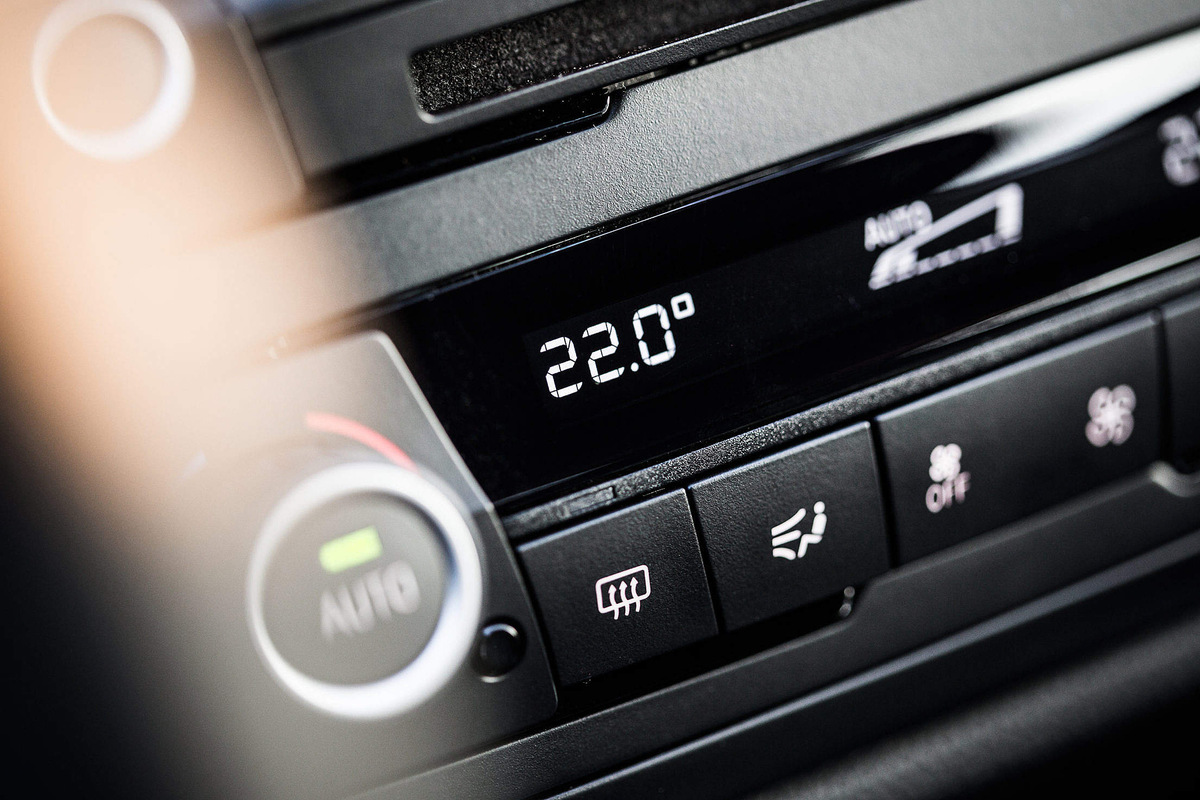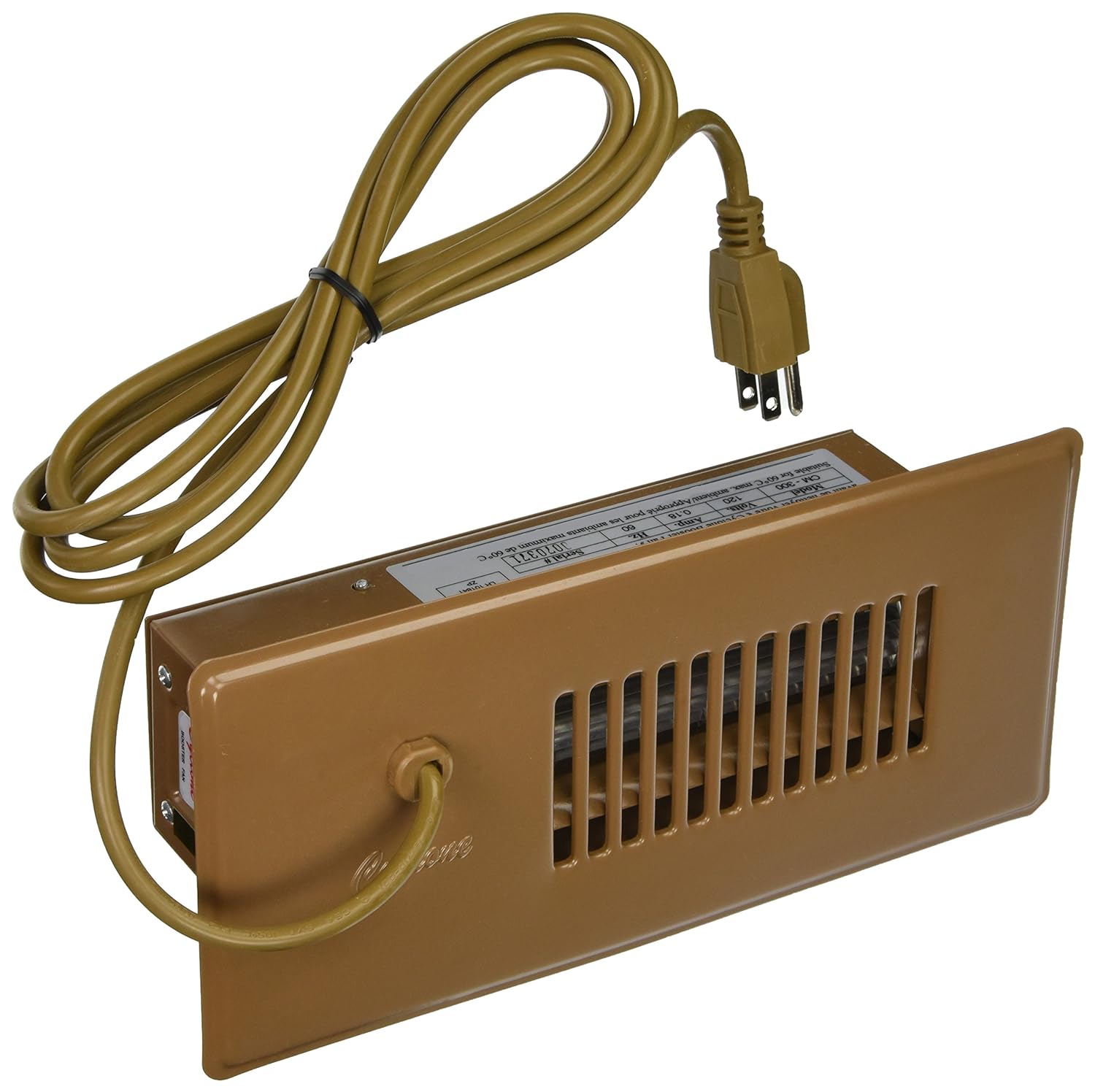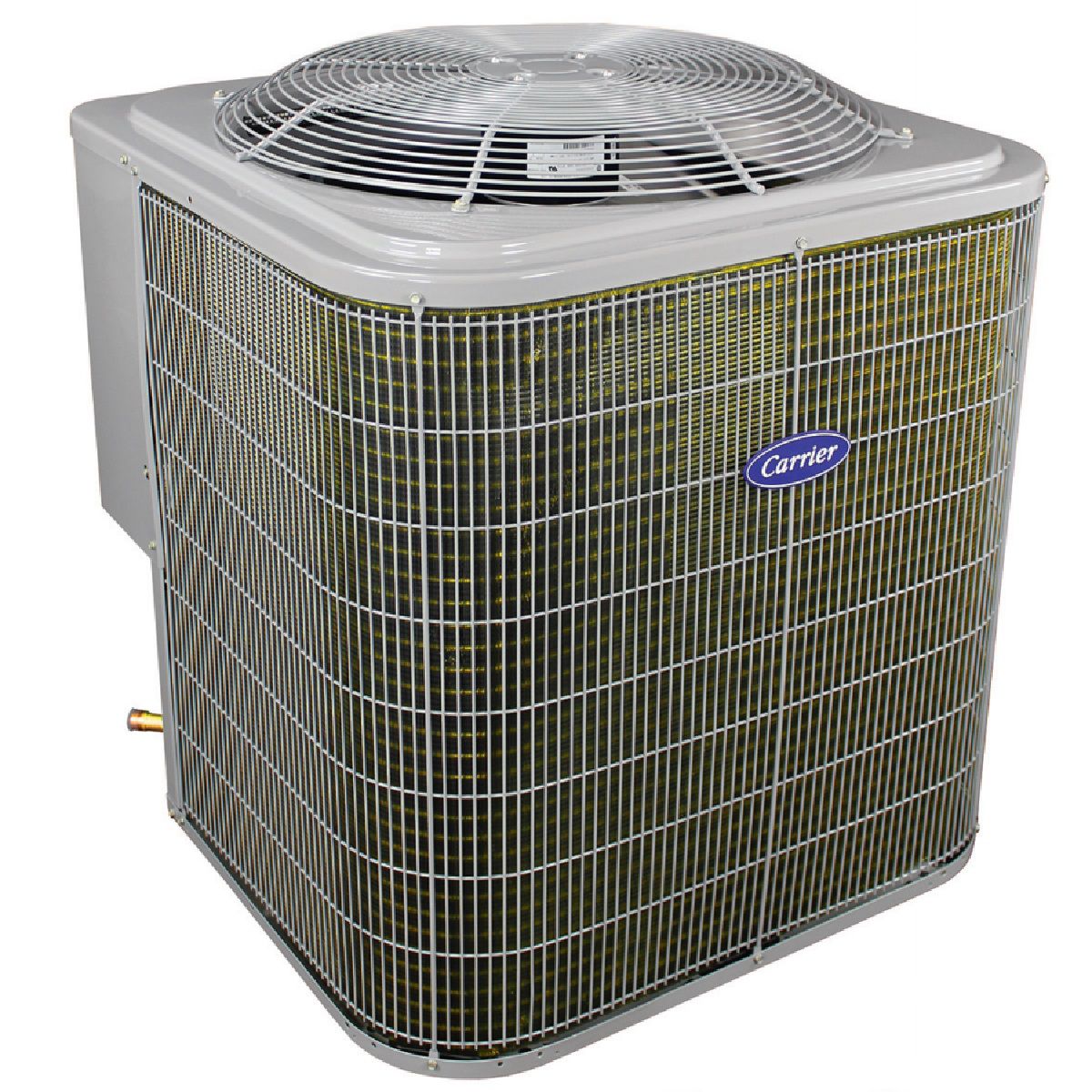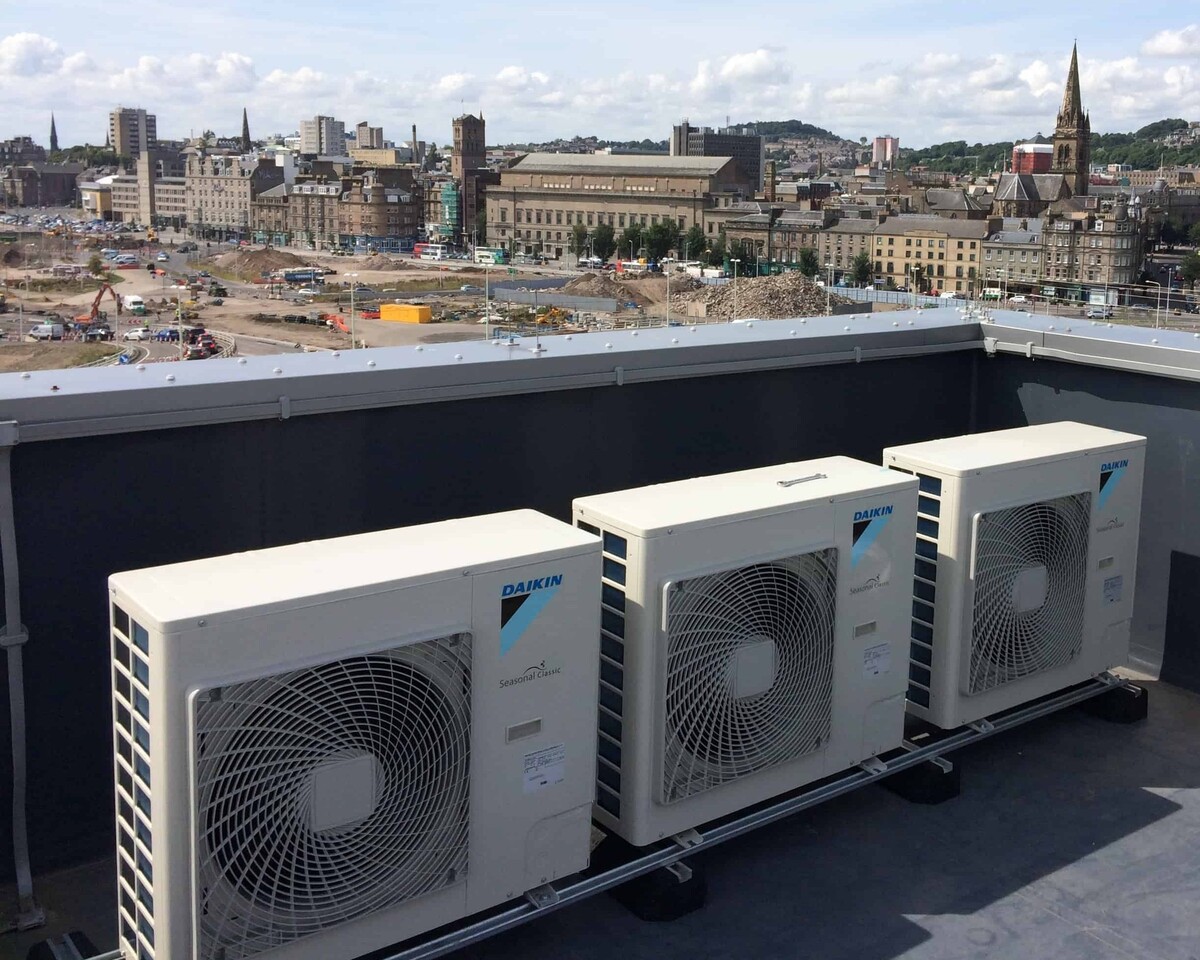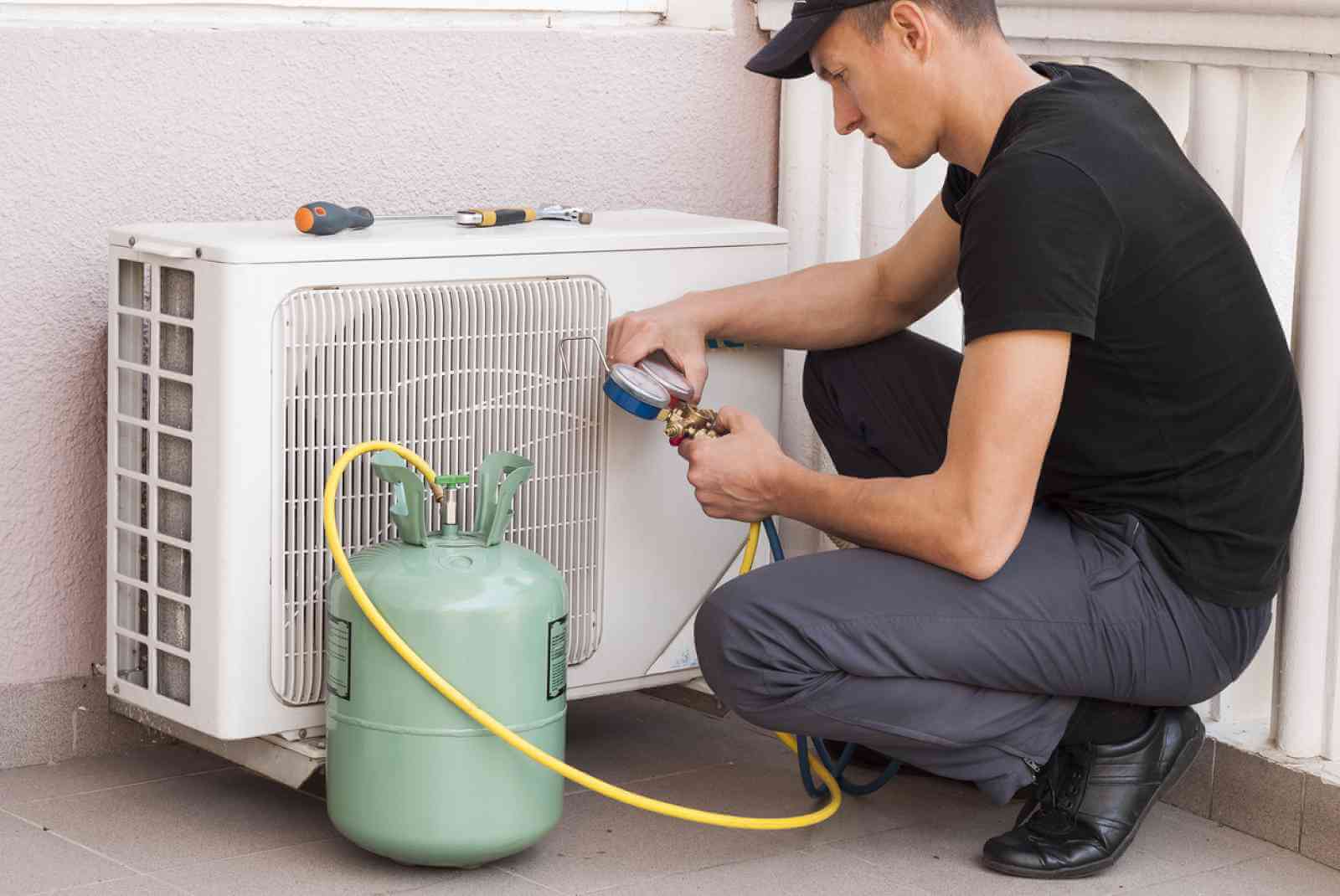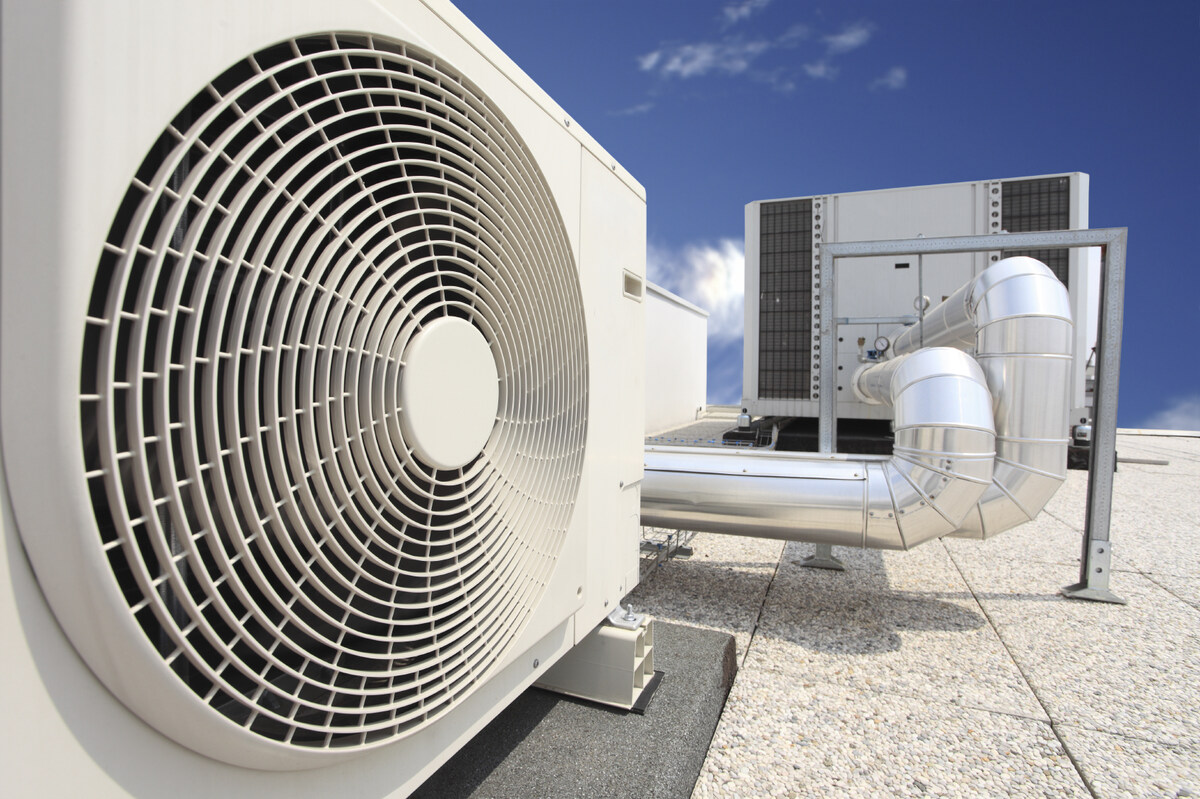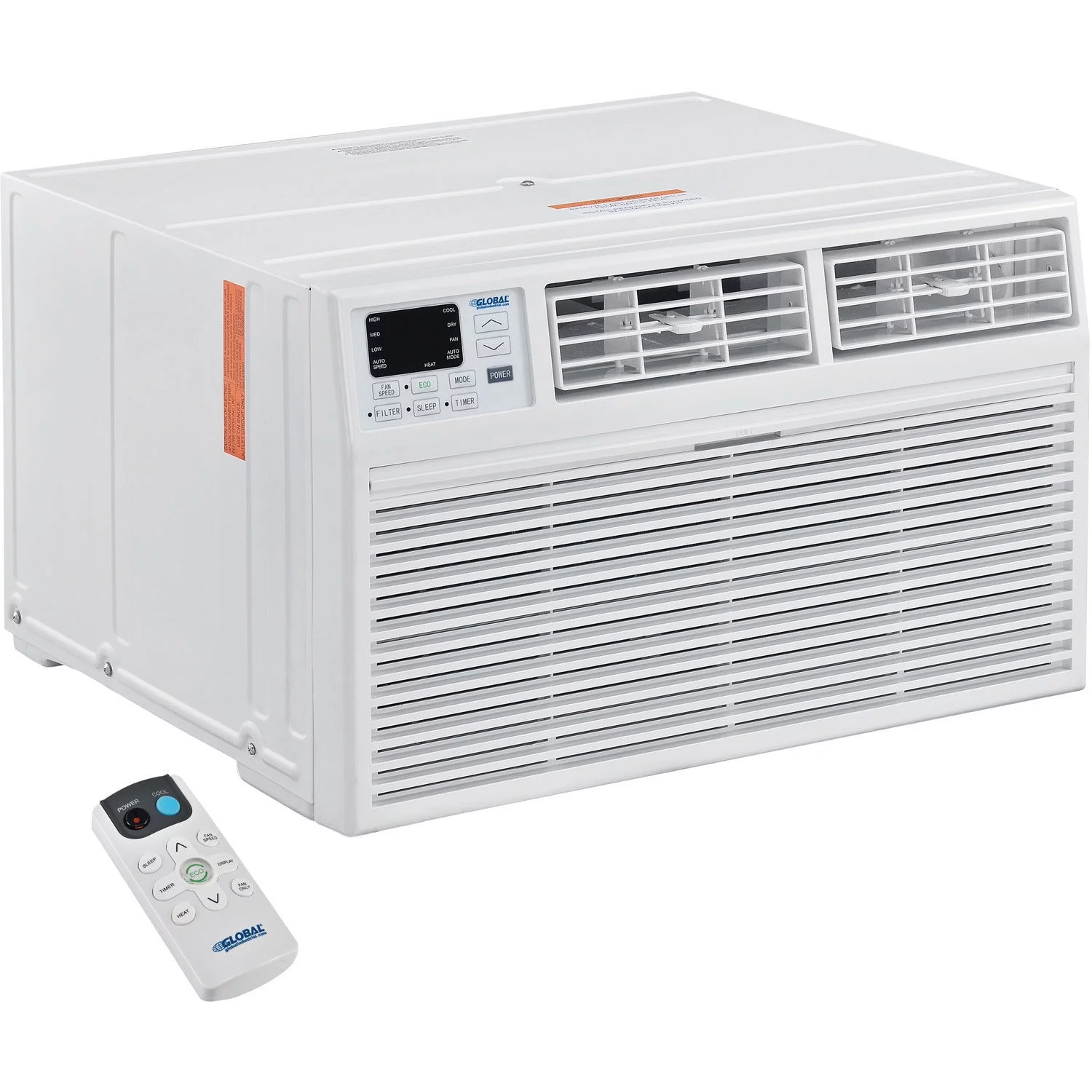Home>Home Maintenance>What Is The Most Efficient Air Conditioning System
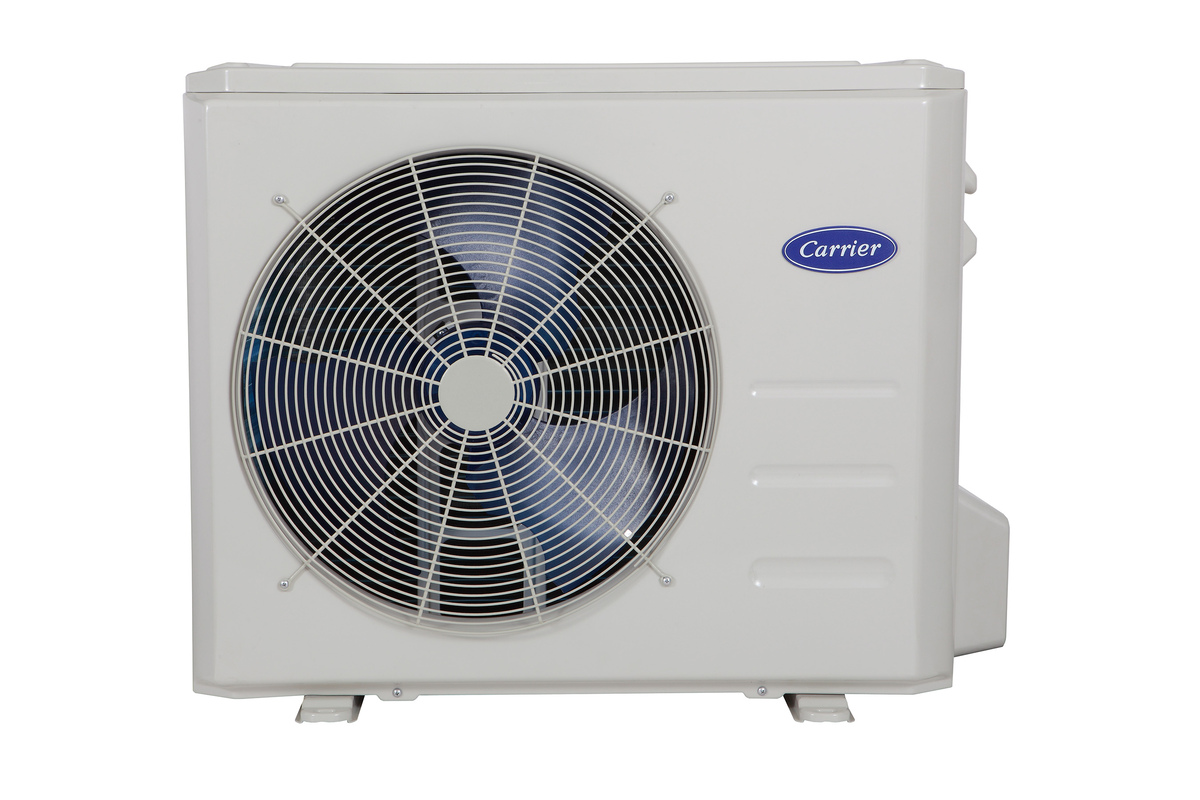

Home Maintenance
What Is The Most Efficient Air Conditioning System
Modified: March 6, 2024
Discover the most efficient air conditioning system for your home maintenance needs. Keep your space cool and comfortable with this energy-saving solution.
(Many of the links in this article redirect to a specific reviewed product. Your purchase of these products through affiliate links helps to generate commission for Storables.com, at no extra cost. Learn more)
Introduction
Welcome to the world of home maintenance, where keeping your living space comfortable and functional is key. When it comes to staying cool during sweltering summers, having an efficient air conditioning system is essential. With a vast array of options available, it can be overwhelming to determine which one is the best fit for your home. In this article, we will explore the most popular and efficient air conditioning systems used in homes today.
Having an efficient air conditioning system not only helps you beat the heat, but it can also save you money on energy bills and reduce your carbon footprint. By understanding the different types of cooling systems and their benefits, you can make an informed decision that aligns with your cooling needs and budget. So, let’s dive in and explore the various options available for efficient cooling!
Key Takeaways:
- Stay cool and save money with the right air conditioning system! Central AC offers whole-home comfort, while ductless mini-splits provide personalized cooling. Choose the best fit for your needs and budget.
- Beat the heat with eco-friendly options like geothermal cooling and evaporative coolers. Save energy and stay comfortable while reducing your carbon footprint. Choose the best cooling system for your home!
Central Air Conditioning Systems
Central air conditioning systems are a popular choice for homeowners who wish to cool their entire home seamlessly. This type of system uses a network of ducts to distribute cool air throughout the house. The system consists of an outdoor unit that houses the compressor and condenser, as well as an indoor unit that contains the evaporator coil and air handler.
One of the main advantages of central air conditioning systems is their ability to provide consistent cooling throughout the entire house. By utilizing ductwork, each room can be cooled to the desired temperature, ensuring comfort in every corner of your home.
Central air conditioning systems are also known for their energy efficiency. Most modern central AC units come with high SEER (Seasonal Energy Efficiency Ratio) ratings, which indicate their energy efficiency. This means that you can enjoy a cool and comfortable home without breaking the bank on energy bills.
Another benefit of central air conditioning systems is the ability to control the temperature of each room individually. This allows for personalized comfort preferences and increased energy efficiency by only cooling the rooms that are occupied.
However, it’s essential to note that the installation of a central AC system requires careful planning and professional installation. Ductwork must be properly sized and installed to ensure optimal airflow and efficiency. Additionally, regular maintenance, such as filter replacement and coil cleaning, is necessary to keep the system performing at its best.
Overall, central air conditioning systems offer a reliable and efficient solution for cooling your entire home. With proper installation and maintenance, they can provide the comfort you need during hot summer months while keeping energy usage in check.
Ductless Mini-Split Systems
Ductless mini-split systems, also known as mini-splits or ductless air conditioners, are a popular choice for homeowners who want the flexibility of cooling specific areas or rooms in their home. Unlike central air conditioning systems, which use ductwork to distribute cooled air, ductless mini-splits have separate indoor units that are mounted on the wall or ceiling.
One of the main advantages of ductless mini-split systems is their versatility and ease of installation. These systems are ideal for homes without existing ductwork or for room additions where extending the existing ductwork is not feasible. Each room or zone can have its own indoor unit, allowing for individual temperature control and comfort preferences.
In addition to their flexibility, ductless mini-split systems are known for their energy efficiency. Most models are equipped with inverter technology, which adjusts the compressor speed based on the cooling needs of the room. This results in energy savings and reduced energy consumption compared to traditional air conditioning systems.
Another benefit of ductless mini-splits is their compact size and unobtrusive design. The indoor units are sleek and aesthetically pleasing, blending seamlessly with your home’s interior decor. They also operate quietly, creating a peaceful and comfortable environment in each room.
When it comes to installation and maintenance, ductless mini-split systems are relatively straightforward. Installation typically involves mounting the indoor units on the wall or ceiling and connecting them to the outdoor unit through a small refrigerant line. Regular maintenance, such as cleaning or replacing the air filters, is essential to ensure optimal performance and efficiency.
Overall, ductless mini-split systems offer a flexible and efficient cooling solution for homes without existing ductwork or for those who prefer individual temperature control in different areas of their home. Their energy efficiency, ease of installation, and unobtrusive design make them a popular choice among homeowners seeking personalized comfort in a cost-effective manner.
Window Air Conditioning Units
Window air conditioning units are a popular and affordable option for cooling individual rooms or small living spaces. As the name suggests, these units are designed to be installed in a window or a small opening in a wall. They consist of a cooling coil, fan, and compressor, all enclosed in a compact housing.
One of the main advantages of window air conditioning units is their simplicity and ease of installation. They typically come with a kit that allows them to be securely mounted in a window frame. Installation usually involves attaching the unit, sealing any gaps, and plugging it into an electrical outlet. No additional ductwork or professional installation is required.
Window air conditioning units are also known for their affordability. Compared to central air conditioning systems or ductless mini-split systems, these units are a more budget-friendly option. They are readily available in various sizes and cooling capacities, allowing you to choose the one that best suits the size of your room.
Another benefit of window AC units is their energy efficiency. Most models come with an energy-saving mode and adjustable thermostat, allowing you to conserve energy and save money on your utility bills. However, it’s important to note that window units may not be as energy-efficient as central air or ductless systems, especially if you need to cool multiple rooms.
Window air conditioning units are designed to cool a specific room or area, making them ideal for small spaces or apartments. They are relatively easy to maintain, typically requiring filter cleaning or replacement on a regular basis. Additionally, they can easily be removed and stored during the colder months to improve energy efficiency.
Overall, window air conditioning units provide a cost-effective and convenient cooling solution for individual rooms or small living spaces. Their ease of installation, affordability, and compact size make them a popular choice among those who need targeted cooling in specific areas of their home.
Consider investing in a variable refrigerant flow (VRF) system for efficient air conditioning. VRF systems can adjust the refrigerant flow to meet the specific cooling needs of different areas, saving energy and reducing costs.
Portable Air Conditioners
Portable air conditioners offer a flexible and convenient cooling solution for homeowners who desire mobility and versatility. These units are standalone and can be moved from room to room as needed, providing localized cooling wherever required. Portable air conditioners consist of a compressor, condenser, evaporator, and fan, all housed within a compact unit.
One of the main advantages of portable air conditioners is their mobility. Unlike window units or central AC systems, portable ACs are not permanently installed. They come with casters or wheels, allowing for easy movement and placement in different rooms. This makes them an ideal choice for renters or for those who frequently change their living arrangements.
Another benefit of portable air conditioners is their ease of installation. Most models require minimal setup, typically involving the installation of a window venting kit. This kit allows for the exhaust hot air to be vented outside using a flexible hose. No permanent modifications to windows or walls are necessary.
Portable air conditioners are also energy-efficient options, as they provide cooling only where it is needed. Since they are not connected to a central cooling system, they don’t require extensive ductwork, reducing energy loss. However, it’s important to note that portable air conditioners may not be as energy-efficient as permanent systems, especially for larger areas.
In terms of maintenance, portable air conditioners are relatively easy to care for. Regular cleaning of the air filters is necessary to ensure optimal performance and efficiency. Additionally, it’s important to drain any accumulated condensation regularly to prevent mold and mildew growth.
While portable air conditioners offer flexibility and convenience, they may not be as effective in cooling larger areas or multiple rooms. Their cooling capacity is typically suited for smaller spaces, making them ideal for bedrooms, home offices, or supplemental cooling in specific areas of the home.
In summary, portable air conditioners provide a versatile and portable cooling solution for homeowners who require flexibility and mobility. With their ease of installation and maintenance, these units offer targeted cooling in specific areas of the home, making them an excellent choice for renters or for those who prefer temporary cooling options.
Read more: What Is A Split Air Conditioning System
Geothermal Cooling Systems
Geothermal cooling systems, also known as ground-source heat pumps, are a highly efficient and environmentally friendly option for cooling your home. These systems utilize the stable temperature of the earth to provide cooling during hot summer months.
Geothermal cooling systems work by circulating a refrigerant through a series of underground pipes, known as a ground loop or geothermal loop. The refrigerant absorbs heat from the indoor air and transfers it to the ground. The cool air is then distributed throughout your home via a duct system or radiant floor heating.
One of the main advantages of geothermal cooling systems is their high energy efficiency. Since these systems rely on the stable temperature underground, they require less energy to provide cooling compared to traditional air conditioning systems. They can also be used for heating during the colder months, making them a year-round solution for your home’s climate control needs.
Another benefit of geothermal cooling systems is their durability and longevity. The underground components are designed to withstand harsh weather conditions and can last for several decades with proper maintenance. Additionally, since the system is located underground, it operates quietly, reducing noise levels inside your home.
Geothermal cooling systems are also an environmentally friendly option. They produce fewer greenhouse gas emissions compared to traditional cooling systems and reduce the reliance on fossil fuels for energy. By harnessing the earth’s natural heat, you can reduce your carbon footprint and contribute to a cleaner and more sustainable future.
However, it’s important to note that geothermal cooling systems require an initial investment for installation. The ground loop system must be properly designed and installed by professionals, which can incur additional costs. Nevertheless, the long-term energy savings and environmental benefits make geothermal cooling systems a worthwhile investment for many homeowners.
In summary, geothermal cooling systems offer a highly efficient and sustainable solution for cooling your home. With their energy efficiency, durability, and environmental benefits, these systems provide long-lasting comfort while minimizing your impact on the planet.
Evaporative Coolers
Evaporative coolers, also known as swamp coolers, are an energy-efficient and cost-effective option for cooling your home, particularly in dry climates. These units work on the principle of evaporation to provide a natural and refreshing cool air supply.
An evaporative cooler consists of a fan and a pad that is soaked with water. When the fan draws in warm air from outside, it passes through the damp pad, causing the water to evaporate. The evaporation process cools the air, which is then circulated back into your home.
One of the main advantages of evaporative coolers is their energy efficiency. Unlike traditional air conditioners that rely on refrigerants and compressors, evaporative coolers use simple, natural evaporation to cool the air. This results in significantly lower energy consumption and reduced electricity bills.
Another benefit of evaporative coolers is their ability to add moisture to the air. In arid climates where humidity levels are low, these coolers can help alleviate dryness and improve indoor air quality. This is particularly beneficial for individuals with respiratory issues or allergies.
Evaporative coolers are also relatively easy to install and maintain. They do not require complex ductwork or professional installation. Regular maintenance involves cleaning or replacing the cooling pads, ensuring proper water supply, and cleaning or replacing the air filters as needed.
However, it’s important to consider that evaporative coolers are most effective in dry climates where the air is not already saturated with moisture. In humid areas, the cooling effect may be less noticeable, and the additional moisture in the air may cause discomfort and humidity-related issues.
In summary, evaporative coolers are a versatile and energy-efficient cooling solution, especially in dry climates. With their natural cooling process, low energy consumption, and added moisture benefits, these coolers provide a cost-effective and environmentally friendly way to beat the heat and improve indoor comfort.
Conclusion
Choosing the most efficient air conditioning system for your home is essential to stay cool and comfortable, while also considering energy efficiency and environmental impact. From central air conditioning systems to ductless mini-split systems, window units, portable air conditioners, geothermal cooling systems, and evaporative coolers, each option has its advantages and considerations.
Central air conditioning systems offer whole-home cooling and energy efficiency but require careful planning and professional installation. Ductless mini-split systems provide flexibility and personalized comfort in individual rooms, making them ideal for homes without existing ductwork.
Window air conditioning units are affordable and easy to install, suitable for cooling specific rooms or small spaces. Portable air conditioners offer mobility and versatility, making them perfect for renters or those who frequently move.
Geothermal cooling systems harness the earth’s natural heat, providing highly efficient and sustainable cooling. Evaporative coolers use the power of evaporation to cool the air with low energy consumption, particularly in dry climates.
Ultimately, the best air conditioning system for your home depends on factors such as your specific cooling needs, budget, and environmental considerations. It is important to weigh the benefits and limitations of each type of system and choose the one that aligns with your priorities.
Remember to consider energy efficiency, ease of installation and maintenance, and the overall impact on your comfort and the environment. Regular maintenance and proper usage are also crucial to ensure that your chosen air conditioning system operates at its optimum level.
By selecting the most efficient air conditioning system for your home and employing best practices in maintenance and usage, you can stay cool and comfortable while minimizing energy consumption and reducing your carbon footprint.
Stay cool!
Frequently Asked Questions about What Is The Most Efficient Air Conditioning System
Was this page helpful?
At Storables.com, we guarantee accurate and reliable information. Our content, validated by Expert Board Contributors, is crafted following stringent Editorial Policies. We're committed to providing you with well-researched, expert-backed insights for all your informational needs.
